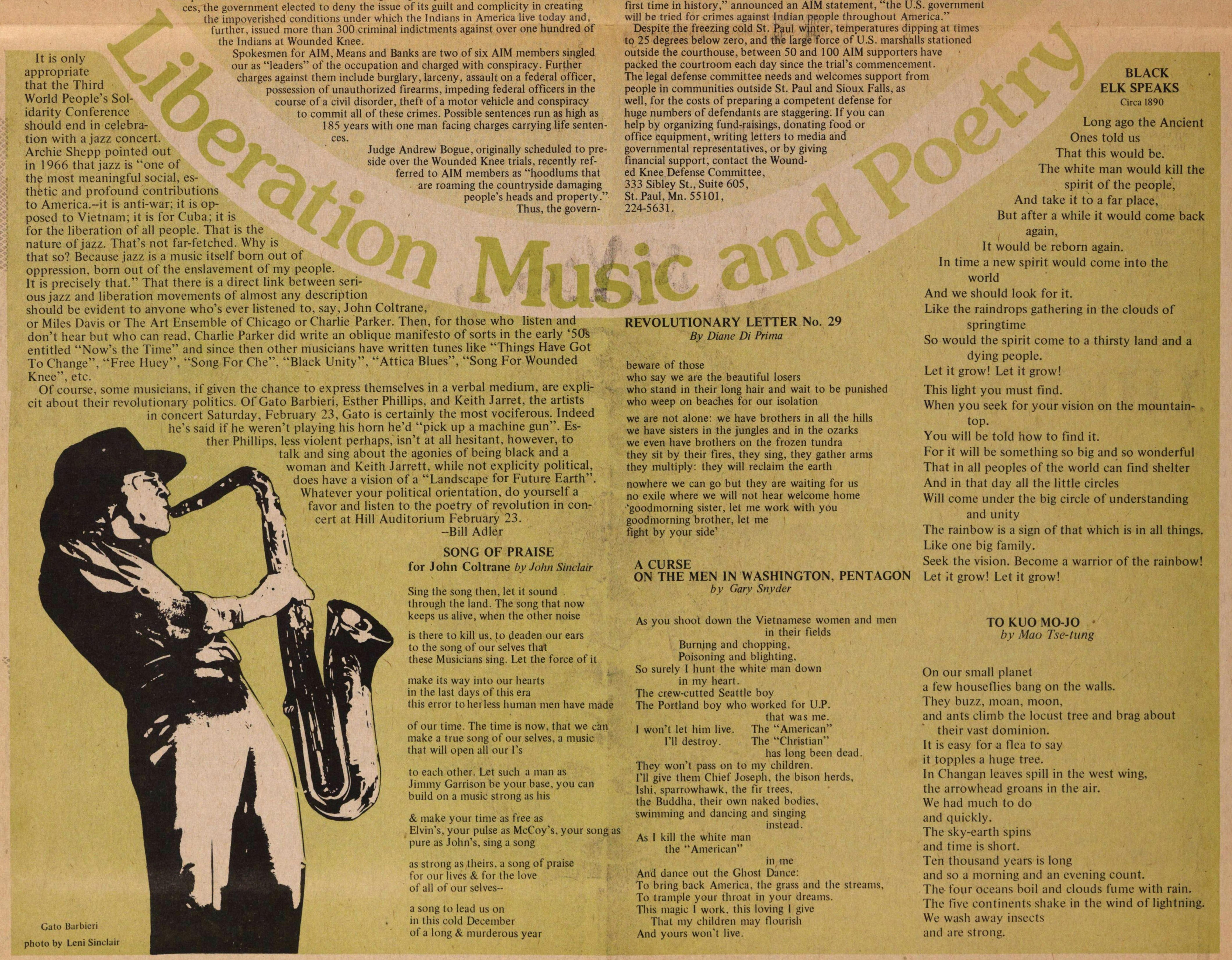Liberation Music And Poetry

Liberation Music and Poetry
It is only appropriate that the Third World People's Solidarity Conference should end in celebration with a jazz concert. Archie Shepp pointed out in 1966 that jazz is "one of the most meaningful social, aesthetic and profound contributions to America.-it is anti-war; it is opposed to Vietnam; it is for Cuba; it is for the liberation of all people. That is the nature of jazz. That's not far-fetched. Why is that so? Because jazz is a music itself born out of oppression, born out of the enslavement of my people. It is precisely that." That there is a direct link between serious jazz and liberation movements of almost any description should be evident to anyone who's ever listened to, say, John Coltrane, or Miles Davis or The Art Ensemble of Chicago or Charlie Parker. Then, for those who listen and don't hear but who can read, Charlie Parker did write an oblique manifesto of sorts in the early '50's entitled "Now's the Time" and since then other musicians have written tunes like "Things Have Got To Change", "Free Huey", "Song For Che", "Black Unity", "Attica Blues", "Song For Wounded Knee", etc.
Of course, some musicians, if given the chance to express themselves in a verbal medium, are explicit about their revolutionary politics. Of Gato Barbieri, Esther Phillips, and Keith Jarret, the artists in concert Saturday, February 23, Gato is certainly the most vociferous. Indeed he's said if he weren't playing his horn he'd "pick up a machine gun". Esther Phillips, less violent perhaps, isn't at all hesitant, however, to talk and sing about the agonies of being black and a woman and Keith Jarrett, while not explicitly political, does have a vision of a "Landscape for Future Earth". Whatever your political orientation, do yourself a favor and listen to the poetry of revolution in concert at Hill Auditorium February 23. -- Bill Adler
Article
Subjects
Freeing John Sinclair
Old News
Ann Arbor Sun